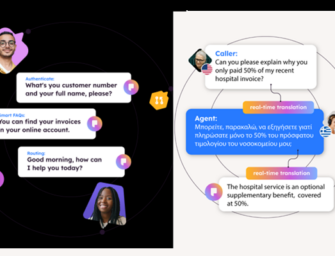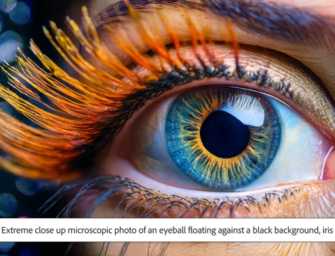Paralympian Garrison Redd Will Discuss Voice Tech Accessibility in Latest Voice Talks Episode
 The fourth episode of Voice Talks Presented by Google Assistant will tackle the place of inclusion and accessibility in voice technology. The episode will livestream on July 30 at 2 p.m. Eastern Time, hosted again by Google Assistant’s co-lead of global product partnerships Sofia Altuna.
The fourth episode of Voice Talks Presented by Google Assistant will tackle the place of inclusion and accessibility in voice technology. The episode will livestream on July 30 at 2 p.m. Eastern Time, hosted again by Google Assistant’s co-lead of global product partnerships Sofia Altuna.
Paralympic Presentation
The combination of interviews and taped presentations for Voice Talks will begin as usual with Altuna introducing the central topic episode, officially titled “Why Inclusion and Accessibility are Essential for Voice Technology.” The central presentation for the episode features U.S. Paralympian and TEDx speaker Garrison Redd in a conversation with the Christopher & Dana Reeve Foundation’s director of corporate and foundation relations Ivonne Salazar. Redd will explain his own use of voice technology, and how he sees it as a tool for raising the quality of life for those with disabilities.
“Voice technology, in general, makes life way more convenient,” Redd said in an interview with Voicebot. “A lot of people typically overlook the amount of stress for people in wheelchairs just getting in and out of the chair. There’s a lot of stress on your ligament. If [voice technology] can save you an extra transfer in and out your chair to turn on lights, that has a tremendous long term impact, as well as a short term impact.”
Redd said he also uses Google Nest devices and Google Assistant in his car and at home. He uses the voice assistant to aid his training as well, connecting with his coaches and trainers and arranging his training schedule voice control. He added that he wished he could have voice control over his dietary journals, but overall credits voice technology with making him more independent. It’s something he highlights as a way to encourage skeptical members of the disabled community, which makes up about 20% of the U.S. population according to a 2019 Census Brief.
“We typically have to rely on others to do what might be considered regular things like turning on lights,” Redd said. “Lot of individuals are reluctant to adopt voice technology because of unfamiliarity, [but] it just takes time to learn.”
Speak Access
As has become standard for Voice Talks, there will be a few presentations from people at Google and the company’s partners For the first segment, Google head of product inclusion Annie Jean Baptiste and Google Assistant policy lead Beth Tsai will discuss and show some of the ways their company is attempting to encourage both accessibility and inclusion, as will the lead for Google Search Assistant accessibility, Kiran Kaja. Google’s head of conversation design outreach Cathy Pearl will also be on the episode to demonstrate to developers how they can connect their multi-modal experiences to inclusion and accessibility. In the final prepared segment, Marvee founder Heidi Culbertson will explain some of the ways voice technology can help older people engage with their community and the world in general. To round out the episode, video submissions from viewers discussing the topic and how voice tech has improved accessibility will be shown. Altuna will also read out interesting questions and comments sent live in the chat or in and tweets marked #AskSofia.
The focus on accessibility is timed to the 30th anniversary of the Americans with Disabilities Act, but Google has rolled out several new features applying voice tech to accessibility this year. Android Action Blocks, for instance, combine multiple actions by Google Assistant into a single voice command or button on a device. Google also expanded its Live Transcribe voice-to-text feature with the option to manually add words and make the phone vibrate if it hears the user’s name. A lot of its ambitions are part of the DIVA initiative that Google revealed at I/O last year, including voice cues in Google Maps directions to help the visually impaired, and Project Euphonia, which works to train voice assistants to understand those with speech impairments.
“Inclusion shouldn’t be an afterthought,” Baptiste said in a statement. “Race, gender, age, ability, education level, and geographic location are all dimensions of diversity that need to be considered in product development, and one that ambient computing, in particular, has prioritized.”
Follow @voicebotai Follow @erichschwartz
Voice Talks Will Explore Education and Entertainment on June 25 Livestream
VOICE Talks Episode 1: Everyone is Using Voice Assistants During the Pandemic
All-Women Episode of Google Assistant and Modev’s VOICE Talks Will Livestream May 26








